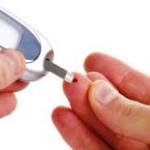One of the side effects of diabetes suffered by many individuals is low blood sugar. In the case of diabetes the body is not able to process blood sugar or glucose which subsequently damages bodily systems and organs. The treatment for this is to use oral hypoglycemic or injectable insulin which assists the body in producing energy by drawing glucose into the cellular system. The insulin or oral hypoglycemic medications require that the individual have enough blood sugar upon which it will work.

In some cases an individual will also have a condition that is known as “brittle” or hard to control diabetes. These individuals find that they have problems with low blood sugar and high blood sugar which happen during both the daytime and nighttime.
Low blood sugar, or hypoglycemia, is the medical term used to describe when blood sugar falls below what the body requires to stay alive. Low blood sugar is defined when the number falls below 65. When the level falls very low, such as below 20, individuals can get confused, drowsy and even lose consciousness. The blood sugar levels are necessary in order to maintain significant brain activity. If the blood sugar drops during pregnancy it can permanently harm the baby.
 Individuals who do not suffer from brittle diabetes can produce low blood sugar by taking too much insulin, not eating enough food, exercise when it wasn’t planned for, drinking too much alcohol or exercising and not eating. Each of these situations causes an environment in the body in which the amount of blood sugar drops and there continues to be insulin present that works on the remaining blood sugar.
Individuals who do not suffer from brittle diabetes can produce low blood sugar by taking too much insulin, not eating enough food, exercise when it wasn’t planned for, drinking too much alcohol or exercising and not eating. Each of these situations causes an environment in the body in which the amount of blood sugar drops and there continues to be insulin present that works on the remaining blood sugar.
Low blood sugar is usually referred to as an “insulin reaction”. People who are suffering from any insulin reaction will present with shaking, sweating, blurred vision, headache, tingling, hunger, numbness, fast heart rate, sudden tiredness, pale appearance, personality changes, confusion, poor concentration and potentially loss of consciousness. (1)
The physician, diabetes educator or endocrinologists should discuss how to treat low blood sugar symptoms with the sufferer. These treatment protocols should also be reviewed with family members and friends as well as carried on the diabetic person in case they are unable to communicate.
People who are having a low blood sugar reaction, and are also exhibiting personality changes or confusion, may have a difficult time accepting treatments. Individuals who suffer from brittle diabetes should also carry injectable sugar for instances when they are unable to take in nutrition by mouth or are unwilling because of confusion.
References:
(1) National Diabetes Information Clearinghouse: Hypoglycemia
http://diabetes.niddk.nih.gov/dm/pubs/hypoglycemia/#treatment
(2) Mayoclinic.com: Hypoglycemia
http://www.mayoclinic.com/health/hypoglycemia/DS00198/DSECTION=treatments-and-drugs
(3) Medscape General Medicine: Nocturnal Hypoglycemia
http://www.ncbi.nlm.nih.gov/pmc/articles/PMC1994862/
(4) Prehospital Emergency Care: Prehospital Hypoglycemia
http://www.ncbi.nlm.nih.gov/pubmed/14582099
| Advertisement | |
|
|



Leave a Reply